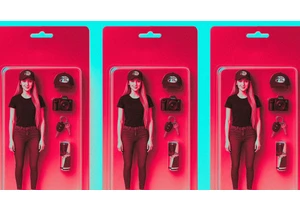Indoor dining establishments across the world are getting battered by the ongoing omicron wave of the pandemic, but new data from SevenRooms—which makes software for restaurant reservations—indicates that the damage is not nearly as dramatic as it was when COVID-19 first struck. As omicron became the dominant strain in North America, restaurant reservation trends definitely reflected fresh hesitance among would-be diners, with cancellation rates jumping 16.6% in December and January, according to data shared by SevenRooms with Fast Company. Globally, the rate of cancellations rose 17.5%. But both of those figures were small in comparison to March and April of 2020, when cancellation rates spiked 72.5% in North America and 44.3% globally. Back then, restaurants and other venues were facing a lot more uncertainty, including local lockdown orders and other harsher restrictions that governments have been reluctant to repeat. In New York City, for instance, restaurants, bars, and even Broadway theaters have been allowed to remain open during the omicron wave, although many have closed temporarily due to outbreaks among staff or as a result of people calling in sick. Even before the highly contagious variant first reared its ugly head, retail businesses were up against staff shortages and reduced foot traffic. The good news is, the omicron wave may already be peaking in some cities that were hit early by it. Data tracking from the New York Times shows what could be a plateau in New York’s daily caseloads, although hospitals there are still overloaded and the situation on the ground remains dire. Let’s just hope those graphs we’re all obsessed with start trending downward soon.
Jelentkezéshez jelentkezzen be
EGYÉB POSTS Ebben a csoportban

Welcome to AI Decoded, Fast Company’s weekly newsletter that breaks down the most important news in the world of AI. You can sign up to receive this newsletter ever


Elon Musk’s SpaceX and two partners have emerged as frontrunners to win a crucial part of President Donald Trump’s “Golde

A new watchdog report uncovers Facebook groups quietly fueling a black market fo

A software application called Interview Coder promises to help software developers succeed at technical job interviews—by surreptitiously feeding them

Amid tariff whiplash and the rejuggling of global trade, GE Vernova’s CEO Scott Strazik is finding a way to stay “relentlessly optimistic.” Strazik returns to the Rapid Response podcast to share h

Tesla‘s electric-vehicle registrations in California dropped 15.1% during the first quarter, industry data showed, signaling an
